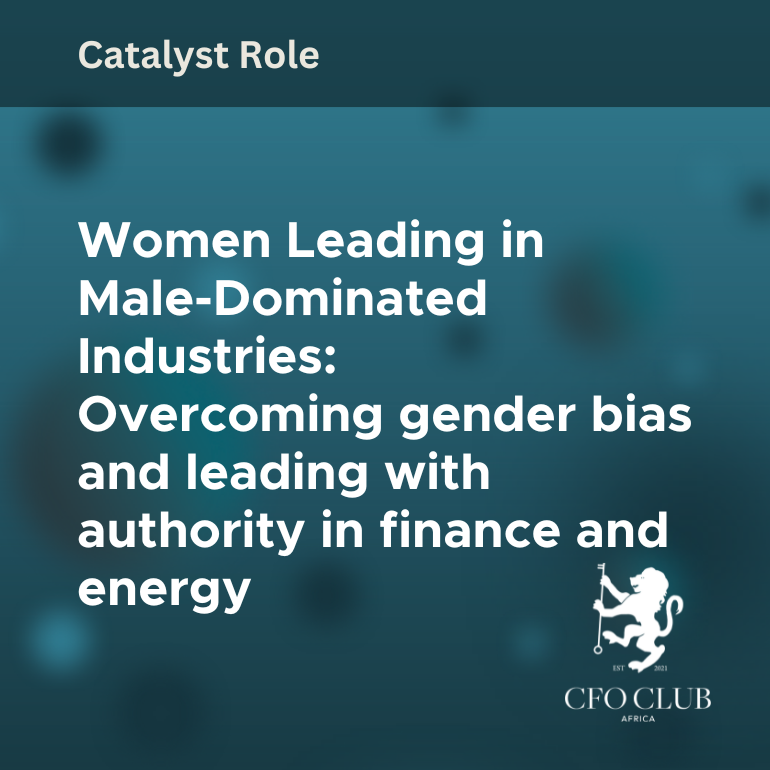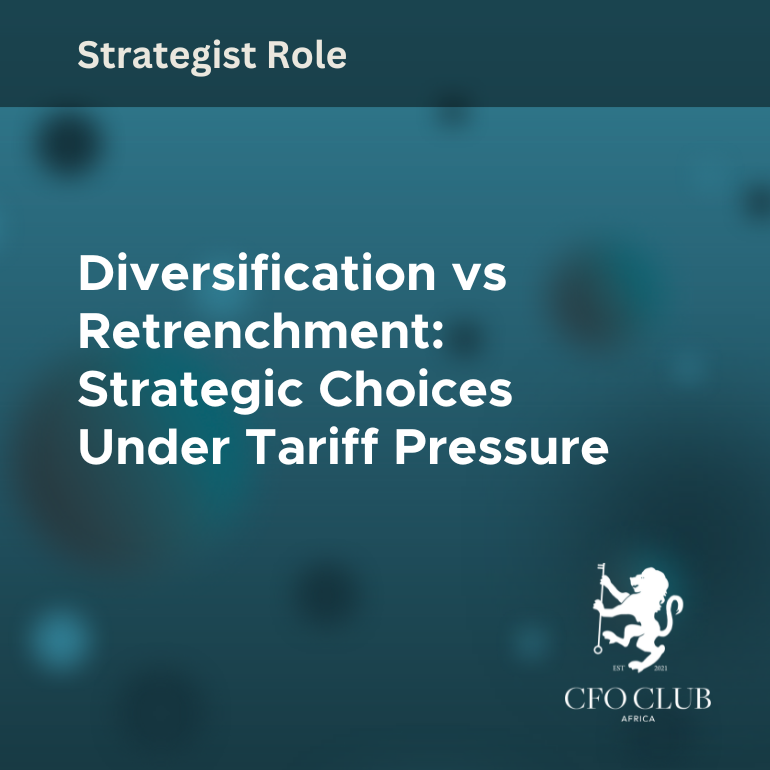Women Leading in Male-Dominated Industries: Overcoming gender bias and leading with authority in finance and energy
It is no secret that industries like finance and energy have long been dominated by men. Boardrooms, executive committees, and industry conferences often reflect a gender imbalance that has barely shifted in decades. For women who step into these spaces, the challenges are not only about doing the job well. They are also about proving, often more than once, that they deserve to be there in the first place.
The uncomfortable truth is that even in 2025, gender bias still shapes how women leaders are judged. A man can walk into a meeting and be assumed competent until proven otherwise. A woman often has to prove competence before she is trusted to speak on equal terms. For CFOs, whether male or female, acknowledging this bias is not about political correctness. It is about confronting an operational reality that influences hiring, promotions, investor confidence, and organisational performance.
The extra burden of proof
Research shows that women in senior leadership often face the double standard of being expected to demonstrate authority without appearing too assertive. In finance and energy, this balancing act is even harder because the environment rewards decisive, direct action. These are qualities that, when displayed by women, are sometimes mislabelled as aggression.
This creates a constant extra burden of proof. A male CFO may be forgiven for a poor quarterly result if he can explain the market factors at play. A female CFO in the same position might be judged more harshly. It can be seen as confirmation of a bias that she was a risky choice to begin with.
This is not theory. It is lived experience for many women who have led finance teams in mining, oil and gas, manufacturing, or capital-intensive sectors where the decision-makers above and below them are mostly male.
Speaking the unspoken rules
Part of leading with authority in male-dominated industries is understanding the unwritten rules. These are the things no one tells you, but everyone seems to know.
For example:
- Interruptions: Women are interrupted more often in meetings. Leading with authority means finding ways to regain the floor without escalating conflict.
- Credit and visibility: Work led by women can sometimes be credited to the team without their name attached, while men’s contributions are named directly.
- Networking spaces: Deals and decisions often start in informal spaces such as golf courses, sports events, or late-night dinners. Women may not be included in these or may be made to feel out of place.
CFOs, regardless of gender, need to be aware of these dynamics. For male CFOs, this awareness can make them better allies and decision-makers. For female CFOs, it is about navigating these spaces strategically without wasting unnecessary energy on battles that do not move the business forward.
Leading with authority, not permission
In industries where female leaders are still in the minority, one of the most damaging traps is waiting for permission to lead. Women who have risen to CFO roles in finance or energy know that authority is not handed over. It is taken through competence, consistency, and confidence.
This does not mean adopting a louder style to match male peers. It means making strategic decisions visible, speaking up even when there is pushback, and holding the same line on performance and compliance that would be expected from any CFO.
One controversial point is that female leaders sometimes face pressure to mentor, champion, and represent women’s issues on top of doing their primary job. While mentorship is valuable, no male CFO is expected to represent all men at the table. The constant demand to carry the flag for all women in the industry can be exhausting and can take focus away from the strategic priorities of the business.
Using financial authority to challenge bias
The CFO role is uniquely powerful in driving organisational change. Finance controls the flow of resources, the tracking of results, and the funding of strategic priorities.
A CFO in finance or energy can:
- Link funding to diversity outcomes. Ensure that business units demonstrate real progress in talent development, not just compliance tick-boxes.
- Track performance by opportunity access. See whether promotions, high-value projects, and training are equally accessible to men and women.
- Challenge informal networks. When procurement or project contracts are awarded through old-boys’ networks, introduce transparent bidding processes.
This is not about favouring women. It is about ensuring the business uses all its talent effectively. Gender bias limits operational efficiency because it leaves skills underused.
The danger of tokenism
One of the quickest ways to undermine progress is to treat female appointments as symbolic. Tokenism creates a perception that the woman is there to tick a diversity box, not because she is the most capable for the role. In high-stakes industries like finance and energy, where billions are on the line, this perception can erode authority before a leader even starts.
Boards and CFOs must be honest. If a woman is appointed to an executive role, it should be because she has met or exceeded the criteria. The organisation must be ready to back her authority publicly and consistently.
Building authority in male-heavy environments
For women leading in finance and energy, authority comes from three consistent practices.
1. Master the numbers: In these industries, data is power. Know your numbers so well that no one can undermine you with surprise questions.
2. Be visible in strategic decisions: Do not stay in the background. Chair committees, lead negotiations, and take ownership of the most complex deals.
3. Build a mixed-gender network: Allies matter, but they need to be in the rooms where influence is traded. This means building relationships with male peers as well as female leaders.
The role of male CFOs in shifting the balance
If you are a male CFO reading this, the truth is you have more influence on gender balance than you may think. You control budgets, you are part of recruitment and promotion panels, and you have direct input into who gets the high-profile projects. Choosing to back competence over comfort, even when that means challenging old assumptions, is part of your job.
The controversial reality is that in many cases, the lack of women in senior finance or energy roles is not because there are no qualified women. It is because decision-makers default to hiring and promoting in their own image. Breaking that cycle requires conscious and sometimes uncomfortable change.
Final thoughts
Women leading in male-dominated industries are not asking for special treatment. They are asking for a level playing field where competence is recognised without bias. For CFOs, both male and female, this is not just a diversity issue. It is a performance issue.
When leadership teams in finance and energy use the full range of talent available, decision-making improves, risk is managed better, and the organisation is better positioned to compete in a volatile global market.
For the women who are already in those leadership seats, the path is rarely smooth. But each step taken with authority, backed by competence and clarity, chips away at the idea that leadership looks only one way. For the male leaders in the room, the question is simple. Will you keep the system as it is, or will you use your influence to lead the change?





